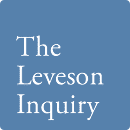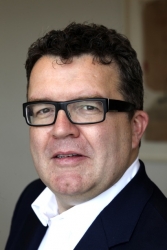The Leveson Inquiry: Where will this all end?
 Tougher legislation will lead to judges becoming censors, says political blogger Guido Fawkes
Tougher legislation will lead to judges becoming censors, says political blogger Guido Fawkes
 Tougher legislation will lead to judges becoming censors, says political blogger Guido Fawkes
Tougher legislation will lead to judges becoming censors, says political blogger Guido Fawkes

This post originally appeared on the Independent Blogs
As the often theatrical spectacle of the Leveson hearings — with its mix of posturing, jousting, inquisition and exposé — draws to a close, the big question is what Leveson will recommend this autumn. Will we see proposals that defend press freedom and promote high professional standards, or do we risk facing proposals that limit press freedom and serious investigative journalism?
Given the range of unethical and illegal behaviour exposed in the phone-hacking scandal, and the tawdry tales of political-media cronyism under the spotlight at the Inquiry, there may be a risk that Lord Justice Leveson will prioritise standards and regulation over our sometimes riotous press freedom.
Calling for independent, self-regulation in the face of the excesses of some in News International and elsewhere cuts little ice with many. But it is worth recalling the most basic elements of our democracy that underpin the need to keep the state well out of our press. Our universal and fundamental right to free speech, to hold opinions, share information (across borders and different types of media), and express views is enshrined in international charters and laws for good reason, not least given governments’ proclivity to interfere in that right.
The governments that most go in for controlling the press, bugging their own citizens, snooping on the net, or criminalising speech tend to be the authoritarian or totalitarian ones, whether we are thinking China, Azerbaijan, Iran or North Korea. But intrusions into press freedom in Italy and Hungary show the problem is closer to home and within democracies too. Without a free press — both online and off — we would lose a big element of our free speech, our ability to hold government and other power-holders (including big business) to account, to investigate wrongdoing, lies, and other cock-ups and conspiracies.
So higher press standards cannot come from statutory government control or regulation. But if the excesses of phone-hacking, and over-close cronyism between some in the media, police and politics, are to be tackled, then we need a new deal. That must include a new self-regulatory body with greater teeth to tackle unwarranted invasions of privacy, false allegations and unethical behaviour. It must be a body that can set and monitor standards. And one that can offer rapid, effective and fair resolution of complaints — including a quick, fair voluntary mediation service as an alternative to lengthy, expensive court cases.
One solution propounded by some given the inadequacies of our current set-up is that press outsiders and retired editors should run the new body. But a press regulator that does not include current senior representatives of the press — not least at a time of rapid change in the technology and business model — will not get buy-in. Nor do we need to reinvent the wheel. Where appropriate laws exist we don’t need to give those powers to a statutory regulator: current laws can tackle most unwarranted invasions of privacy and can deal with bribery of public officials.
One big challenge for a new self-regulating body — and for Leveson in his report — will be how to balance the right to privacy with the need for serious journalism in the public interest. Journalists need to know that if they are digging deep into questions of misleading or false statements by politicians, or investigating public health or security risks, or tracking potentially criminal behaviour, that they have a public interest defence. At the moment, some UK laws allow such a defence, others don’t. Journalists are operating in an ad hoc and unclear legal framework that can lead them to draw their horns in and shift towards self-censorship.
And last but not least, while the tales of texts, lunches and cosy chats between some leading media figures, politicians and police may encourage an ever downward trend in trust for these groups, regulating such contacts, beyond existing law, is not the way to go either. Whether it’s the whistle-blower, or just a good source in a government department tipping a journalist off in the right direction, serious probing journalism depends on informal interaction with politicians and officials.
Some of our senior figures have shown they have little idea of where to draw the line in such relationships, so clear professional standards need setting out. But the state will over-regulate given a chance. Voluntary and professional standards combined with good corporate governance remain the only route to go if we still credit press freedom and democracy as inextricable. That is the challenge for Leveson.
Kirsty Hughes is Index on Censorship’s Chief Executive.
 Date: Monday 9 July
Date: Monday 9 July
Time: 1pm
Venue: Dartington Hall, Totnes, Devon, TQ9 6EL
Tickets: £9, available here
Phone-hacking, Murdoch and the Media
Interviewed by Index Chief Executive Kirsty Hughes, Tom Watson MP will tell the full behind-the-scenes story of the phone hacking scandal. He led the questioning of Rupert and James Murdoch and Rebekah Brooks when they appeared before the Select Committee in July 2011 and continues to be at the forefront of the investigation.
David Cameron has said statutory regulation must be a “last resort” in reforming the British press.
Spending the day giving evidence before the Leveson Inquiry today, the prime minister — who himself called for the Inquiry into press standards — said he was not ruling out statutory involvement in a new regulator, but said there was a need to “make everything that can be independent work before you reach for that lever”.
He said independent regulation of the press must involve all newspapers, be compulsory, be able to impose penalties and have investigatory powers.
A reformed Press Complaints Commission (PCC) had to be seen to be simple, understandable and offer redress for ordinary individuals, he said.
The key, Cameron said, was if an individual suffered press intrusion or was the subject of an inaccurate article, “that it really is worth their while going to this regulator, however established, and they know they’re going to get a front-page apology.
“Are we really protecting people who have been caught up and absolutely thrown to the wolves by the press?” he asked, citing repeatedly the “catacylsmic” revelations of last summer that abducted schoolgirl Milly Dowler’s phone had been hacked, which led to the closure of tabloid the News of the World and Cameron’s call for a public inquiry into press malfeasance.
“If families like the Dowlers feel this has really changed the way they would have been treated, we would have done our job properly,” Cameron said.
While he maintained he understood the “real concern” over statutory regulation of a free press, he repeated that he felt the country’s current system of press self-regulation had “failed”.
Lord Justice Leveson’s report, which will offer recommendations on future press regulation, is due to be published this autumn.
Cameron emerged from his day in the witness box relatively unscathed, save the revelation of a text message from former News International CEO Rebekah Brooks during the Conservative party conference in October 2009, in which she told the then leader of the opposition that “professionally, we’re definitely in this together” and signed off “yes he Cam!”
Cameron also spoke cautiously about his appointment of former News of the Wold editor Andy Coulson as his communications chief in 2007, noting that it was “controversial” due to Coulson’s resignation from the tabloid following the jailing of one of its reporters on phone hacking offences.
Yet Cameron stressed he and current chancellor George Osborne felt Coulson was a “very effective” candidate.
“The calculation was, who is going to be good enough, tough enough to deal with a very difficult job,” Cameron said.
He described the issue of Coulson’s lower-level vetting by Number 10 as a “red herring”, and defended handing responsibility of the £8bn bid for control of BSkyB to culture secretary Jeremy Hunt, telling the Inquiry that it had been endorsed by Cabinet secretary Sir Gus O’Donnell and backed with legal advice.
Looking to the future, Cameron recommended greater distance and respect between members of the press and politicians, noting that the relationship was not “a particularly trusting one at the moment”.
“When I got into Downing Street I did try to create a bit more distance. I think I need to go back and do that again,” Cameron said.
The Inquiry continues next week.
Follow Index on Censorship’s coverage of the Leveson Inquiry on Twitter – @IndexLeveson